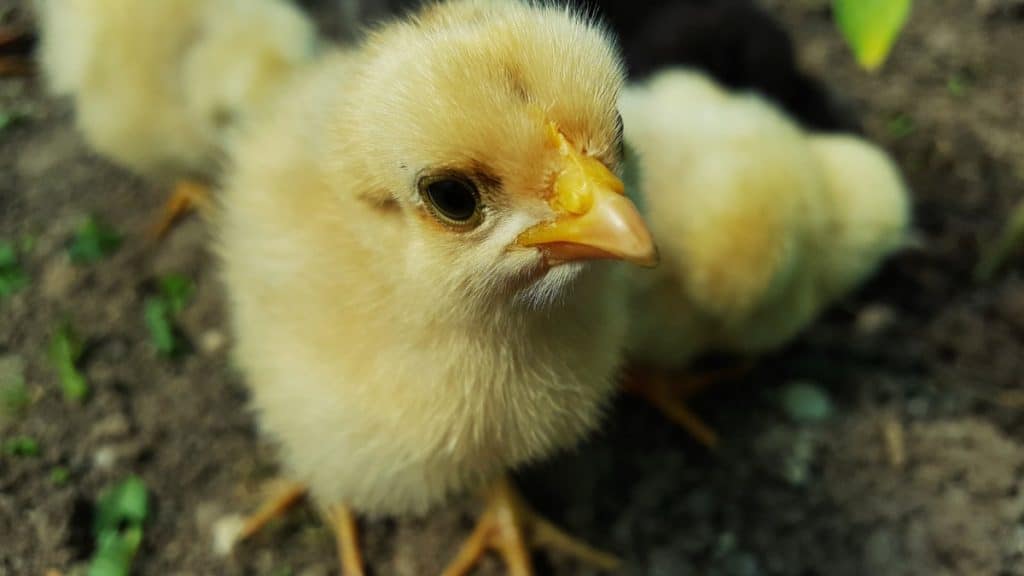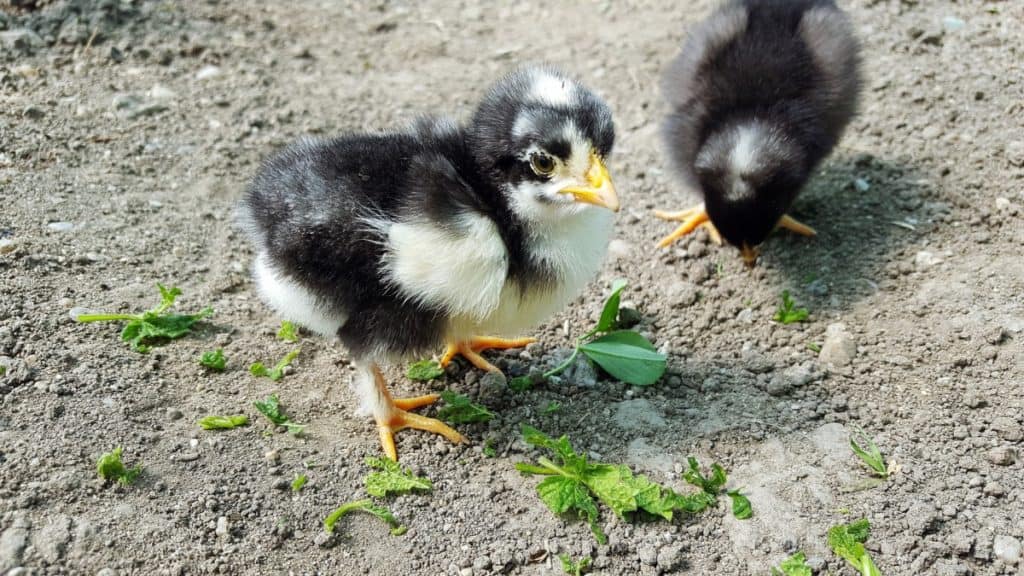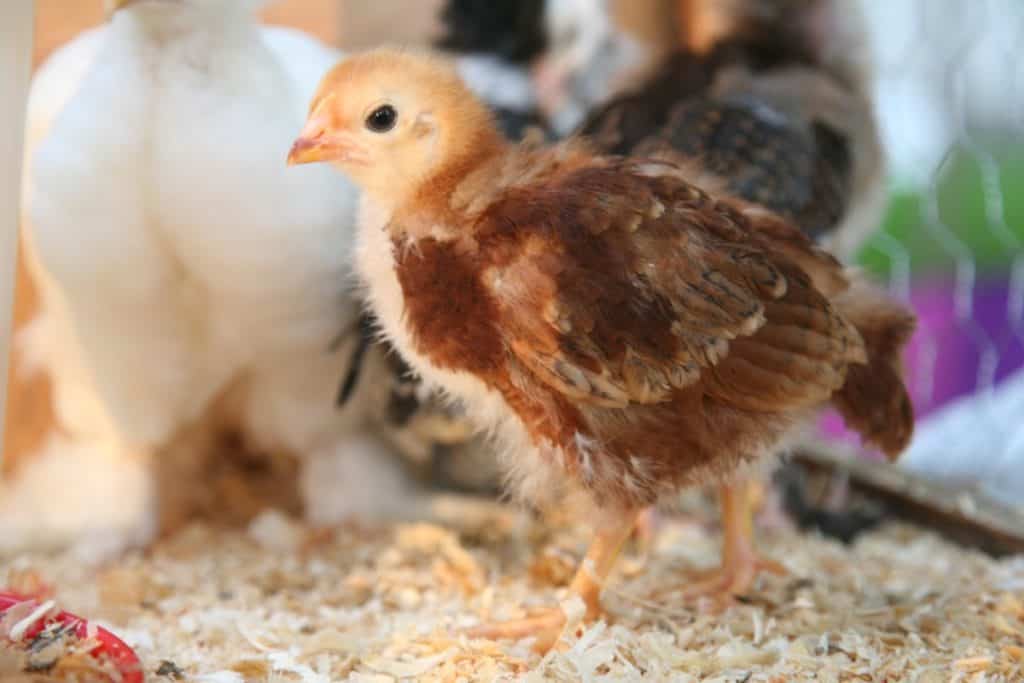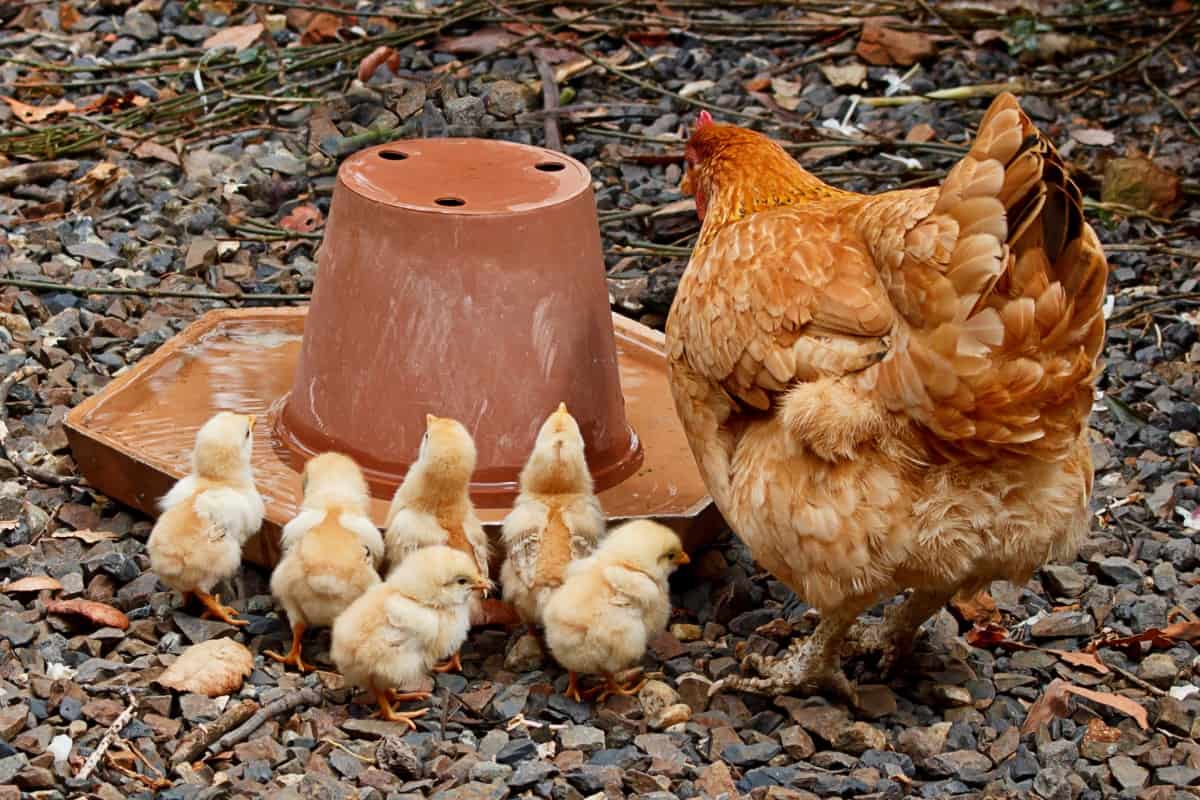Perhaps you have just entered the poultry world and bought your first clutch of chicks. You have a heat lamp, feed and water set up, but the baby chicks seem to chirp constantly. Sometimes they are very loud and insistent, and other times they seem quieter but still chirp. It’s puzzling because they seem to have everything they need. Why do chicks chirp so much?
Chicks chirp as a means of communicating with their mother and with the other chicks. Chicks chirp more loudly and with more urgency when they have a need. They may be cold, hungry, thirsty, or lost. In a natural environment, hen-chick communication is vital for the care of the chick.
Chickens are not complex animals to care for, but a brood of chicks can be quite challenging, especially if they have no mother. Chicks chirp a lot, and sometimes it can seem as if they never stop. This article will look at why chicks chirp and what should be done about it.
Hens And Their Chicks Communicate While The Chick Is In The Egg.
Scientists have discovered that hens communicate with their chicks while the chicks are still in the eggs. The hen clucks softly, and the chicks chirp back. A chick in an egg may send a distress chirp out, which prompts the hen to move or turn the eggs. It is vital that all the eggs stay warm.
It is also essential that fertilized eggs are turned periodically so that the chick does not become stuck to the shell. When the chick is comfortable in its shell, it becomes quiet or makes happy, satisfied, chirping noises.
As the eggs get ready to hatch, they begin to chirp more often, and this stimulates the chicks in the other eggs to start hatching. This phenomenon allows the clutch of chicks to hatch within a short time of each other. The hen can take the whole brood to start feeding without sitting for long periods waiting for all the eggs to hatch.

Hens And Chicks Communicate After Hatching.
Hens call their chicks by clucking, and the chicks respond with cheeps and run to their mother. The hen uses these vocalizations to teach the chicks how to peck food and how to drink water.
Chicks that become separated from their mothers will chirp with a distressed sound. This motivates the mother to look for her chick. The cheeping of the chicks encourages the hen to gather the chicks under her wings to keep them warm.
Why Do Chicks In A Brooder Chirp?
Chicks in an artificial brooder still show natural chirping behavior. If you listen carefully to the chicks, you will begin to notice a difference in the way they chirp.
When the chicks are warm and comfortable, you will hear the chicks chirp less often, and the chirping is quieter and sounds like sleepy satisfied chicks. If the chicks are distressed in some way, they will chirp very loudly and incessantly.
You will begin to notice the difference and know that you need to check the chicks when you hear these distress calls.
Cold Chicks Chirp
The most critical requirement for newly hatched chicks is warmth. They are unable to sustain their body temperatures by themselves. Normally they would rely on the warmth of the hen when she tucks them under her wings.
In a brooder, the only warmth is a heat lamp. It is essential to maintain the temperature at a constant appropriate level. In the first week, the temperature should be between 93° F and 95° F (33° C – 35° C). This is much warmer than most people would guess as being the correct temperature for chicks.
During the second week, the temperature can be dropped marginally to 85° F to 89° F ( 29° C to 31° C). You can lower the temperature by two to three degrees every week until the sixth week when the chicks can cope with temperatures of 70° F ( 21° C). At six weeks of age, the chicks have all their adult feathers and can maintain their body heat.
Another clue that chicks are cold is that they will all be huddled together. This crowding can become a problem as sometimes chicks can be squashed and die because of the pressure of the other chicks. It is also essential that chicks do not become overheated.
They will chirp loudly if they are too hot, and they will space themselves out to try and cool down. Thermometers should be placed at various points in the brooder to ensure the brooder temperature is correct.

Thirsty Chicks Chirp.
Chicks do not automatically know how to drink water from a shallow tray or bowl. Usually, they would learn how to drink from their mother. A useful trick is to put shiny objects like marbles or large beads in the water tray. The chicks will peck at the shiny objects and, in so doing, learn to drink the water.
It is important that water bowls are shallow as chicks can easily drown. Chicks drink a surprisingly large amount of water – especially if there are many chicks. If you hear the chicks chirping in a distressed manner, check their water.
Sufficient water is critical as chicks quickly become dehydrated and will not eat if they are thirsty. If the chicks have been without water for a period, stay to watch them drink after you have replenished their water. Sometimes chicks can drown themselves in their desperation for water.
Hungry Chicks Are Noisy Chicks
Chicks need to eat finely ground food for the first few weeks of their lives. The feed should be correctly balanced to ensure maximum growth. Broiler chicks eat large quantities, and they should have a constant supply of food to allow them to grow as required.
Layers and backyard chicks will not need as much food, and food can be put out twice a day. As the chicks grow, the feed can be gradually changed to include bigger grains and pellets. If the chicks are constantly cheeping, check their food supply and replenish it if there is no food available. The food must be kept clean and should be free from mold.
Chicks can fall ill from fungi and bacteria if the food is contaminated. The food should be kept free of feces from the chicks and wild birds.
Wild birds’ feces commonly contain coccidia, which can then infect the chicks. Coccidia is a protozoan parasite that causes a disease called coccidiosis. The symptoms include diarrhea, weak, listlessness, depressed chicks, and death.
Lost Or Hurt Chicks Chirp
Sometimes chicks fall out of the brooder or lose their mothers accidentally. They will chirp frantically to call their mother. If they are in a brooder, you will need to locate the lost chick and return it to the brooder. Lost chicks die quickly from cold or lack of water.
They are also vulnerable to predators, so it is a life-preserving behavior for chicks to chirp loudly when lost. If a chick has hurt itself or has a foot stuck somewhere, it will also chirp loudly initially.
It will soon tire, though if it is stuck, and then become quiet with only an occasional chirp. Unfortunately, chicks are so fragile that they die rapidly if they are not assisted quickly.
Happy Chicks Chirp
When chicks are contented and have everything they need, they will still chirp. This chirping is much quieter and less insistent.
If you listen to it, you can hear there is no urgency or distress in the vocalizations. You can congratulate yourself if you hear your chicks making these happy chirps.

Conclusion
Chicks are preprogrammed by their genetics to chirp to communicate with their mother.
Chirping is important in the hatching process. Chicks chirp loudly and urgently when they are distressed by cold, lack of water, or lack of food. You can regard this as a natural alarm sounding. It warns you to check the chicks and intervene to correct the situation.
It is imperative to ensure that the chicks are warm, fed, and have water. They are incredibly delicate and die easily from adverse circumstances. Chicks will also call an alarm when they are lost, frightened, or injured in some way. This alerts the mother hen who will look for her chick to assist it.

